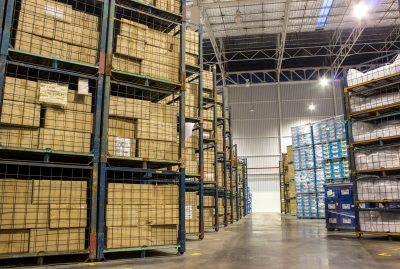 Based on inputs from the public consultation on the first draft held last October, the Philippine Department of Finance (DOF) and Bureau of Customs (BOC) have released a new draft customs administrative order (CAO) focused solely on customs bonded warehouses (CBWs).
Based on inputs from the public consultation on the first draft held last October, the Philippine Department of Finance (DOF) and Bureau of Customs (BOC) have released a new draft customs administrative order (CAO) focused solely on customs bonded warehouses (CBWs).
In an advisory, the agencies said the entirely new draft is the result of the previously held hearing on the draft CAO on CBWs and customs facilities and warehouses last October 20. A new draft order dealing exclusively with customs facilities and warehouses will be published later on.
Deadline for submission of position papers on the newly published draft is December 16, and no public consultation will be held since one was already conducted previously.
The draft CAO applies to all types of CBWs listed in the Customs Modernization and Tariff Act as well as those to be created by the secretary of finance upon the recommendation of the customs commissioner.
They are customs bonded manufacturing warehouse, miscellaneous manufacturing bonded warehouse, garments and textiles manufacturing bonded warehouse, customs common bonded warehouse, industry-specific customs bonded warehouse, private bonded manufacturing warehouse, and bonded non-manufacturing warehouse.
Under the draft CAO, the BOC will be responsible for issuing an authority to operate CBWs, including imposing the requirements for their establishment and operation, setting forth the rights and obligations of operators, and laying down the penalties and sanctions for violating these rules.
The application to operate a CBW, including accreditation as a member, a subcontractor, or a client-exporter of an existing warehouse, should be filed with the district collector where the CBW is located.
The authority to operate a CBW, including warehouse extensions and additional facilities, is valid for three years upon approval of the application to establish the facility, as stated in the Certificate of Authority to Operate.
If the lease of contract submitted during the application is less than three years, the validity of the authority to operate will be coterminous with the lease contract unless a new one with a longer period is submitted.
The draft further states that customs officers and personnel will be assigned to CBWs to monitor and implement control measures, and that the warehouse operator must provide working areas complete with office equipment and supplies so they can perform their functions.
Goods entered for warehousing may remain in a CBW for up to one year from the time they arrive at the warehouse. However, the commissioner may, in consultation with the secretary of trade and industry, extend the storage period beyond one year for particular bonded goods for manufacturing and intended for export, subject to the approval of the secretary of finance. This is to allow time for these bonded goods to be processed into finished products, as they require a longer period based on industry standards and practices.
For perishable goods, the storage period is three months from arrival at the warehouse, extendible for valid reasons and upon written request, for another three months.
The customs commissioner will issue the necessary customs memorandum order containing the detailed guidelines and procedures, including the lodgement, processing and clearance of imported goods entered through CBWs, to ensure effective implementation of the CAO.
Moreover, the customs commissioner may have all existing CBWs re-evaluated, reclassified, and reorganized to ensure compliance with the requirements and conditions of the CAO.
CBWs already existing and authorized to operate prior to effectivity of the CAO are required to comply with all administrative and reportorial requirements set forth by December 30, 2020.
Image courtesy of photoraidz at FreeDigitalPhotos.net





